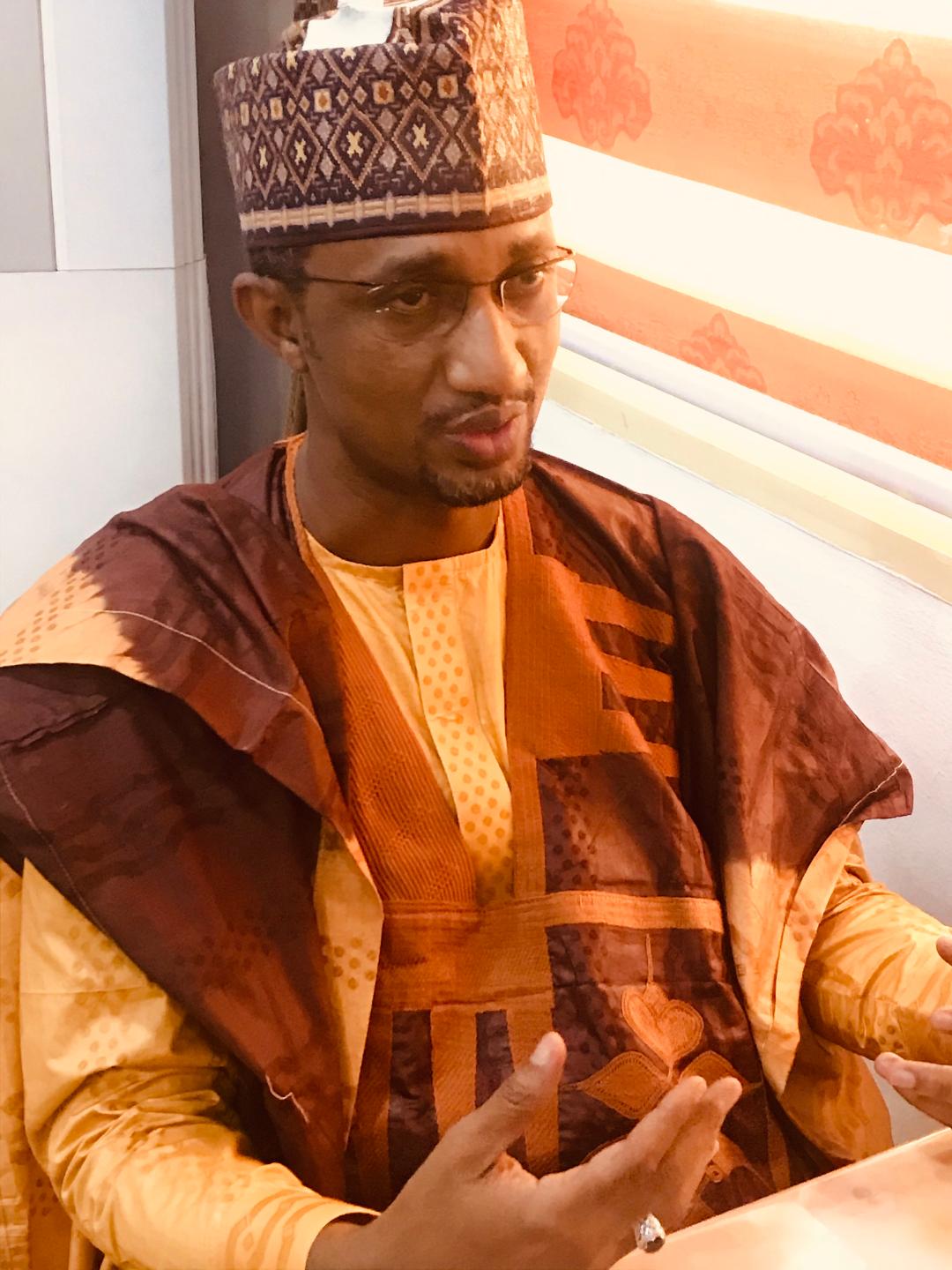
Writer posits that the Nigerian Meteorological Agency has metamorphosed into a dependable organisation that has improved standards and extended its services to other parts of Africa
The history of aviation in Nigeria cannot be told without its tragic air accidents but the good news is that Nigeria, in the last 10 years has recorded one of the lowest air accidents and major incidents in the world, especially as it relates to commercial airlines.
A prelude to this good news was the decision of the federal government to reinvigorate the Nigerian Meteorological Agency (NIMET) and to make the Nigeria Civil Aviation Authority (NCAA) autonomous. Part of the bouquet was also to establish independent Accident Investigation Bureau (AIB), which is today Nigerian Safety Investigation Bureau (NSIB) that has extended its services to rail and maritime investigation.
Bad Weather
It would be recalled that the cause of the last three tragic accidents in Nigeria were weather related. One was the Bellview Airlines accident involving Flight 210 operated by Boeing 737 aircraft, which took off from Lagos and crashed shortly after, killing 117 souls on board.
Also, on December 10, 2005 a McDonnel-Douglas aircraft operated by Sosoliso Airlines crashed on landing at the Port Harcourt International Airport, Omagwa, killing almost the 108 passengers on board, most of whom were students of Loyola Jesuit College, Abuja. That was a very tragic air crash that etched itself in the heart of many Nigerians. Report indicated it was caused by low level wind shear.
On October 29, 2006, a suspected low level wind shear led to the crash of a Boeing 737 aircraft operated by ADC Airlines, killing most of the 97 persons on board immediately after take off from the Nnamdi Azikiwe International Airport, Abuja.
These accidents prompted the federal government to review its funding of NIMET, which in addition to its contribution to aviation safety, is critically important for other sectors of the economy, including agriculture, maritime and others. In repositioning the agency, industry analysists said two heads of NIMET gave it a significant mileage among others. The first that began to execute the new policy of the federal government was the former Director General, Dr. Anthony Anuforo who started building the critical infrastructure for accurate weather forecast. The current Director General of NIMET, Professor Mansur Bako Matazu, took over the vision where his predecessor stopped.
Transformation
According to industry observers, Matazu has transformed NIMET and gave it global recognition in such a manner that it has become a representative of sub-Saharan Africa in advancement of meteorology and contribution to accurate weather forecasting. In fact, pilots of international airlines that operate to Nigeria have confirmed at diffrent fora that Nigerian weather forecast is accurate and dependable. Hitherto, some of these airlines depended on satellite for weather information while operating to Nigeria, but now all foreign airlines depend on NIMET weather report, THISDAY learnt.
Matazu spoke to selected aviation journalists recently in Abuja, during the African Aviation Conference. In terms of infrastructure, training and efficient service, NIMET has excelled and can only be compared to major agencies in the world. Today, NIMET renders daily services to Sierra Leone and Liberia and is assisting many countries in West and Central Africa to develop their meteorology organisations.
Many of these services rendered to these countries are invaluable and cannot be priced but such services, further burnishes the experience of NIMET as service provider for accurate weather prediction.
“We do provide technical service to some countries like Sierra Leone, Liberia, Burkina Faso, Niger etc as I said. There is what we call WMO VCP (Voluntary Country Partnership), which is called in ICAO as ‘No Country Left Behind’. So weather is dynamic and it moves from one area to the other. So, if you have the capability and you don’t share that expertise to your neighbours, I don’t think you are helping. Example, in Nigeria, if there is a problem in Niger Republic relating to drought and flood, we have over a thousand kilometers borders, all of them would move to Nigeria. That is number one. The reason America and other countries are called Superpowers is by providing some of these supports,” he said.
Collaboration
Matazu disclosed that NIMET has been working with many international agencies to broaden its horizon and deepen its knowledge and experience. The agency started Volume Coverage Pattern (VCP) with World Meteorological Organisation (WMO) and according to Matazu, “In the VCP meeting that we attended, Nigeria was the only black nation because you have US, UK, Spain, Netherlands, eight of them plus Nigeria because we want to show the world that we are not a beggar nation in all ramifications, even in the science of weather and services, we are not waiting for any country.”
“We just had a meeting with the French Government. We are going to do a programme with them and they were very happy with what they have seen. This provides credibility, trust and relevance and with that you would get recognised by the global community and they suggested Nigeria will help these other countries under this United Nations financed Systematic Observation Financing Facility (SOFF). The essence of this SOFF is based on the UN Secretary General’s statement that in the next five years, all citizens in the world must have access to early warning about weather; you have seen what happened in Libya; 10,000 people unaccounted for and more than 6,000 people confirmed dead in one incident. But if these people got early warning, it has been confirmed globally that if people get early warning on any imminent weather hazard, you are bound to reduce casualties by more than 70 percent. But if they get the information one week ahead, it will increase the number that will be saved,” he said.
Matazu explained that what the United Nations wants is to issue weather warnings like the way NIMET issues Seasonal Climate Prediction, which is almost six months in advance.
“That is a very good lead time and based on this, the UN gathered people, financing facilities, all these development banks like the World Bank, they have contributed money and it is through this money that they said, ‘Okay, bigger nations should help weaker ones.’ That was how they identified Nigeria and we are assisting Niger, Liberia, Sierra Leone, Burkina Faso and also Somalia. This is just the first phase, we are going to do an additional phase and in all these, our staff are getting involved, they are getting more exposed and Nigeria is getting more relevant as a big brother in Africa and in the world generally. We are also getting additional funding also to support our services,” Matazu said.
Health Sector
Matazu said NIMET has been providing information that is critically important tot he health sector, noting that health is very critical because it determines productivity and in the tropical region, most of the diseases are climate induced. For instance, malaria thrives due to the humidity, temperature and availability of vector breeding sites being provided by either waterlog operation or vegetation. So, NIMET carries out analysis, which include NDVI (Normalised Difference Vegetation Index) weather climate and it can predict during its seasonal climate prediction.
“We can predict the malaria incident, including even the ability of the mosquito to bite because that ability even depends on weather for the mosquito to breathe and even to bite. So with that we have permanent relationship with the Centre for Disease Control and Federal Ministry of Health (Public Health Department).
“Under our Applied Met Department, we have a Climate and Health Desk. Every month we provide them information including how effective the performance of the drugs because the drug performance, efficacy, is also being influenced by weather. Meningitis, Cholera, Measles are all climate induced and with this, the agency was invited last time by the WHO to participate in a regional project to develop framework on climate and health. We have built this confidence and we can also provide from now alert of people that have Asthma, that this weather condition can trigger Asthmatic Attack based on our threshold analysis,” the Professor said.
Training
NIMET has two training schools. When Matazu was appointed as the Director General, the schools’ infrastructure was in disrepair but the Director General rehabilitated them in addition to the modernization of some structures that house the agency’s critical equipment in different states.
On training schools, Matazu said: “We have two schools – the WMO (World Meteorological Organisation) Regional Training Centre in Lagos and the Mohammadu Buhari Meteorological Institute of Science and Technology in Katsina. The one in Lagos is offering WMO classes certificates of class one, class two and class three equivalent of Diploma, HND and Postgraduate Diploma and the one in Katsina is accredited by the NBTE (National Board for Technical Education), offering Diploma in Meteorology and Diploma in Climate Change and we are working with NBTE to get accreditation for HND since we have graduated the first set. All the English speaking West African countries and all NiMet staff that you have seen across the country are products of the Regional Training Centre in Lagos,” the Director General said.
According to him, “All the directors of Met Services in English Speaking West African countries are our students and they are performing wonderfully well and that is why every year, WMO sponsors people. Even these Gambians, Cameroonians and the ones from Niger that would come to the centre in the next few days, they would come under WMO fellowship and we are getting revenue in dollars from that participation. So we are bringing forex into the country and we are bringing credibility and relevance also into the country, including even our Diploma graduates in Katsina, and most of them had gotten direct entry admission for their degrees and with this issue of climate change, we have a lot of government agencies that can resolve them.”

Challenges
Obviously, the Nigerian Meteorological Agency is doing well but despite that the agency like other organisations is fraught with challenges. The major challenge, Professor Matazu pointed out, is brain drain. Many well educated and highly skilled young personnel have been poached by other organizations overseas. There is also the challenge of funding because as the agency expands its operations and engages more personnel, it needs more funds to execute new projects and programmes.
“Some of our staff are young, vibrant and they acquire higher degrees and with that their marketability increases. At times we get some of them poached, not internally, but by international organisations. But you know something, we don’t see it as a major challenge because we have thousands of qualified Nigerians that can replace them because we imbibe the issue of mentoring.
“We are also getting a lot of demands now, which is creating a lot of positive challenge to us. There is a lot of interest now in what we do and that is good for us. So, it sharpens our work and then let us do more on this and with that revenue will come, client satisfaction would be achieved and then sustainable development will also be achieved. I just don’t believe and say because of dwindling revenue, you cannot perform. What we do is just to block leakages and then implement performance management system whereby you work not because you are being supervised, but because it is your work and you are happy doing it.
“I can tell you most of them close very late, just make them happy with regards to welfare, training, working environment, Internet and all this and you can get the best from them. Even, our website was created by our staff, we didn’t pay a kobo. We only sent them for training and we are getting the best. Our people are working diligently. Most of our software were created by our staff; in fact, some of them don’t have degrees and they are doing the job well. We just send them on training, stay there for a week and we spend less than N2 million training them. Some of these kits are being done by organisations with millions of naira, but we develop them all in-house,” Matazu said.
NIMET is efficiently providing critical services to the aviation industry and other sectors of the economy. A top official of the Ministry of Aviation said recently that NIMET is an agency that has positively put Nigeria on the global map.






